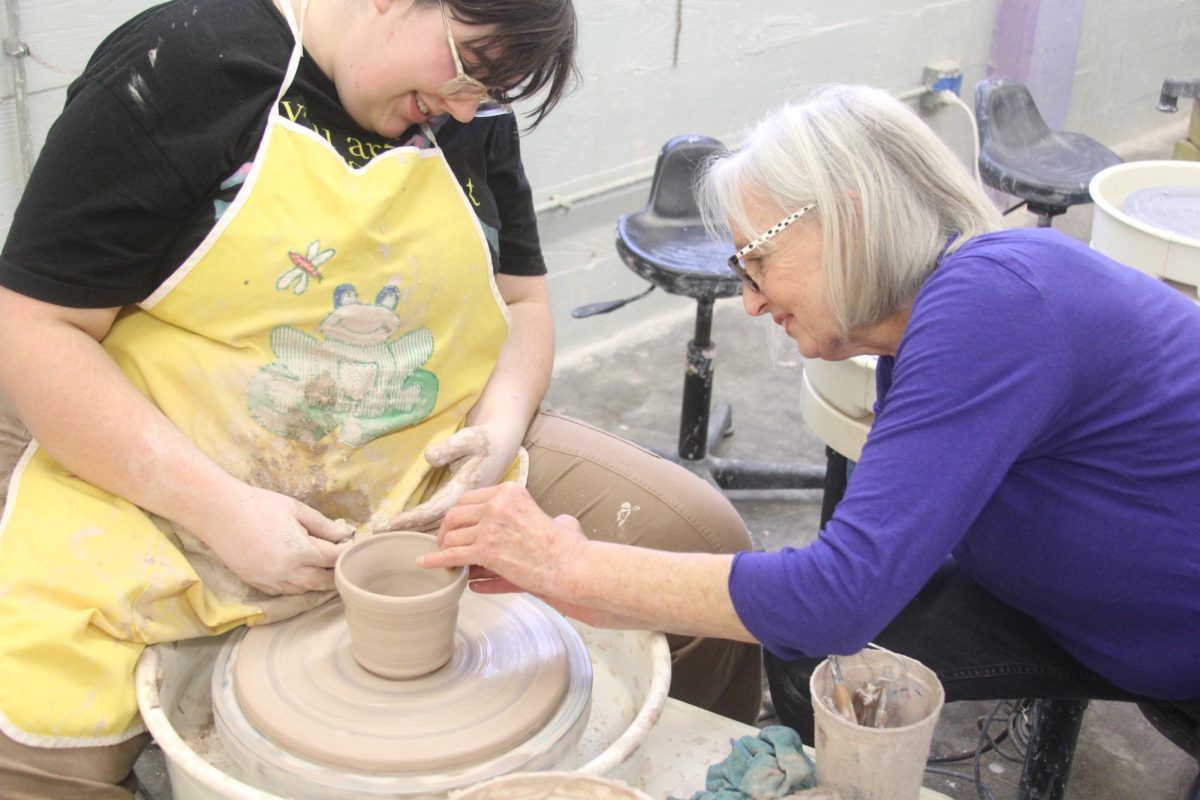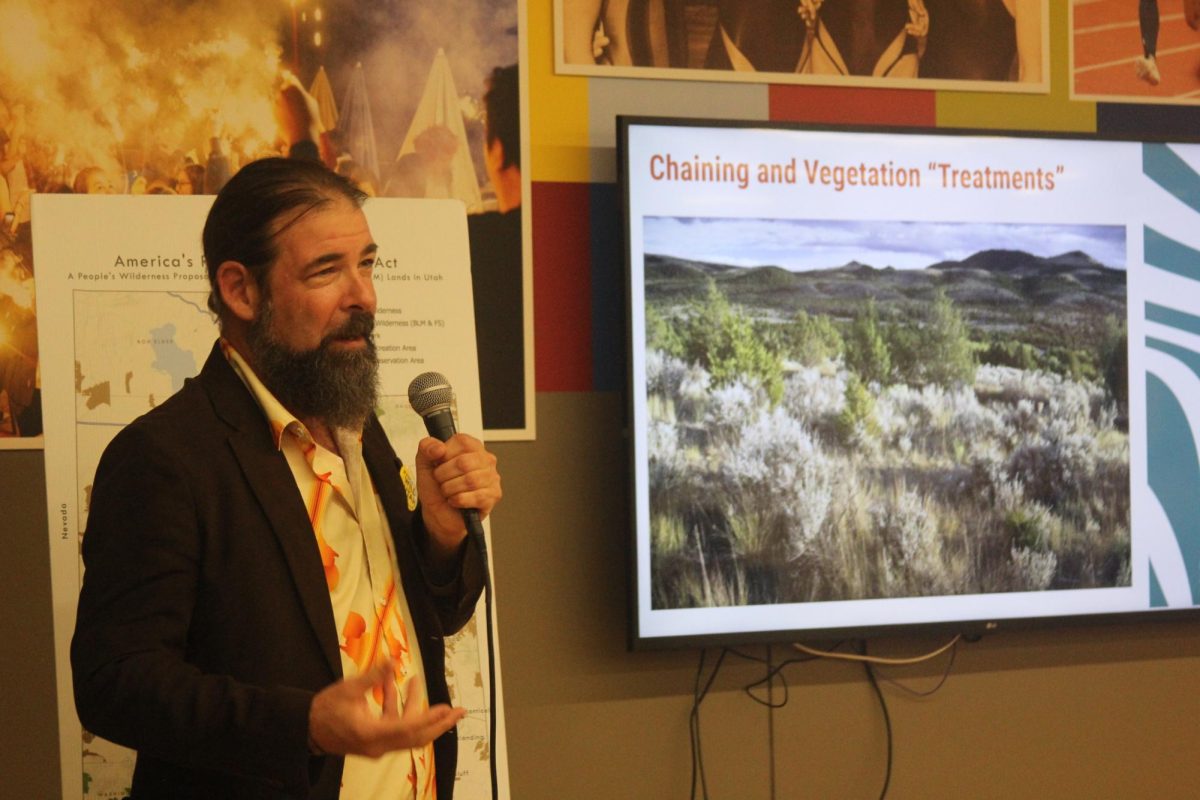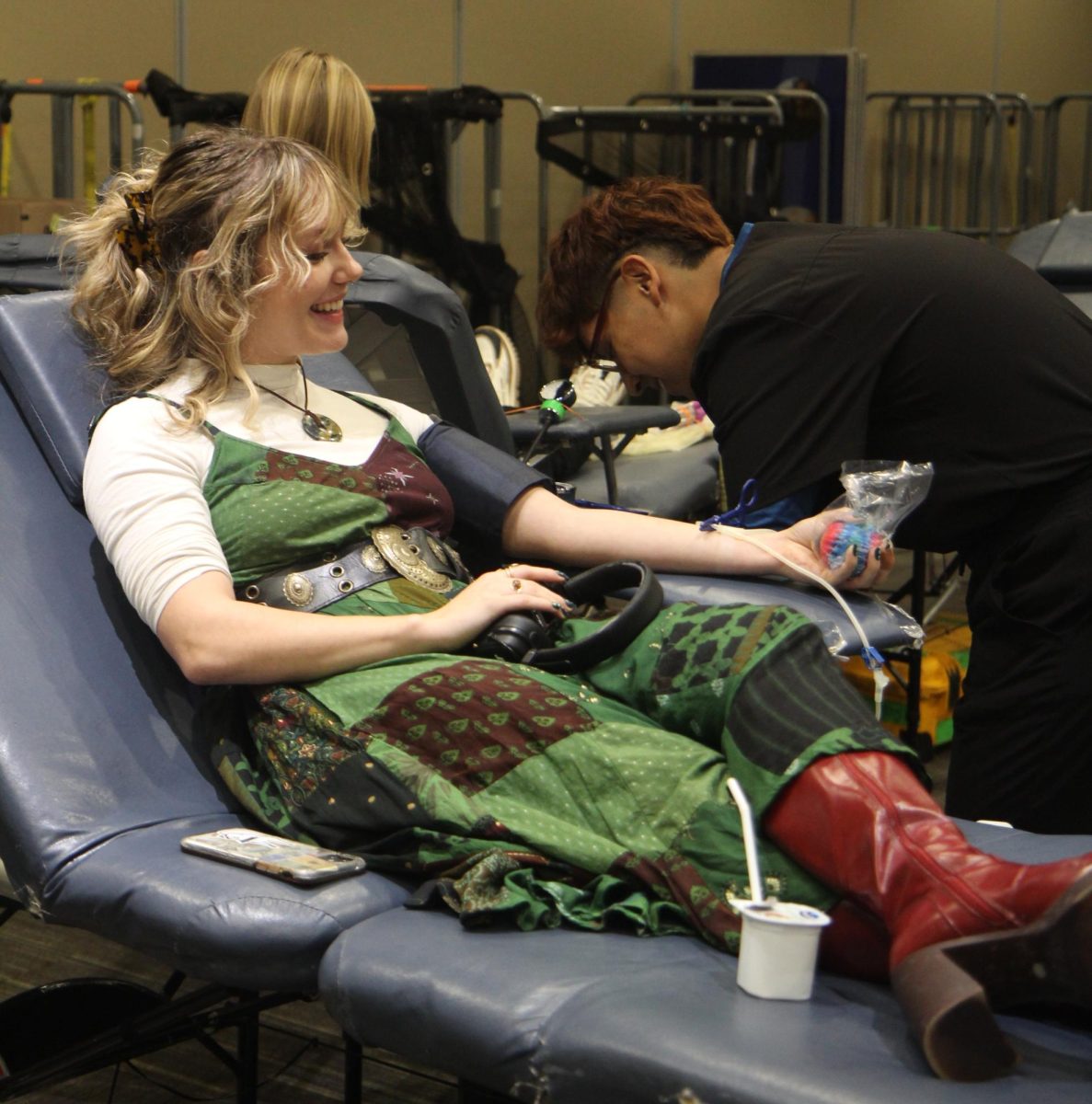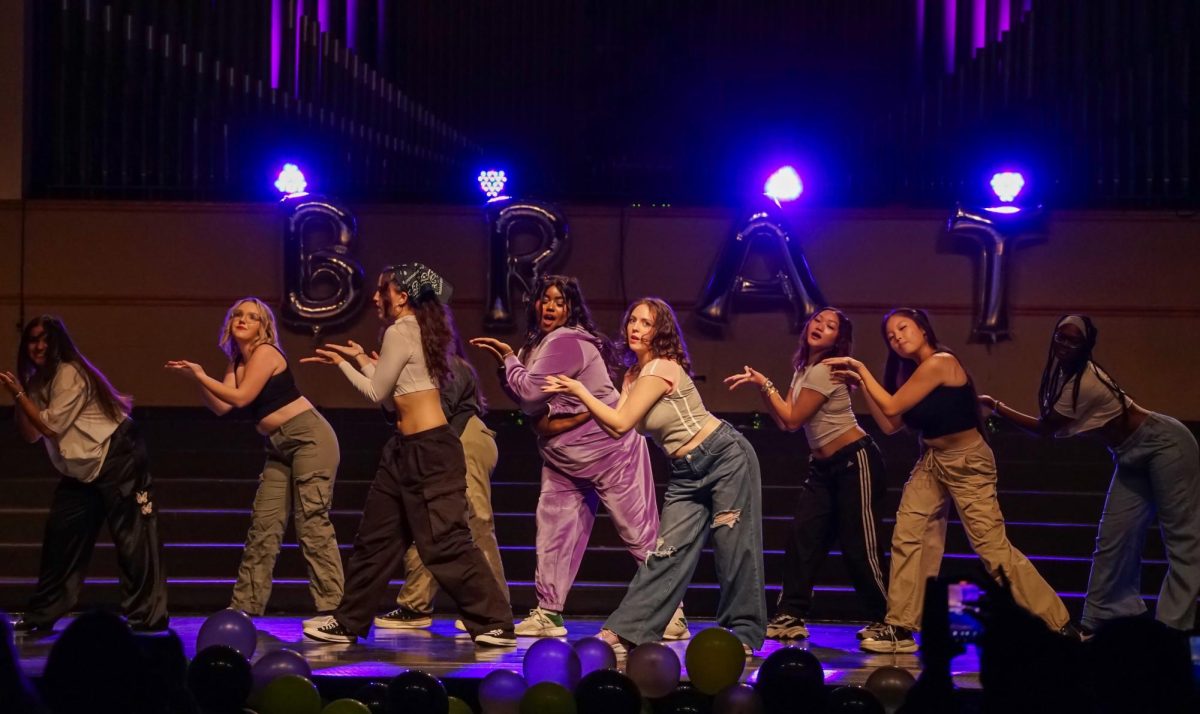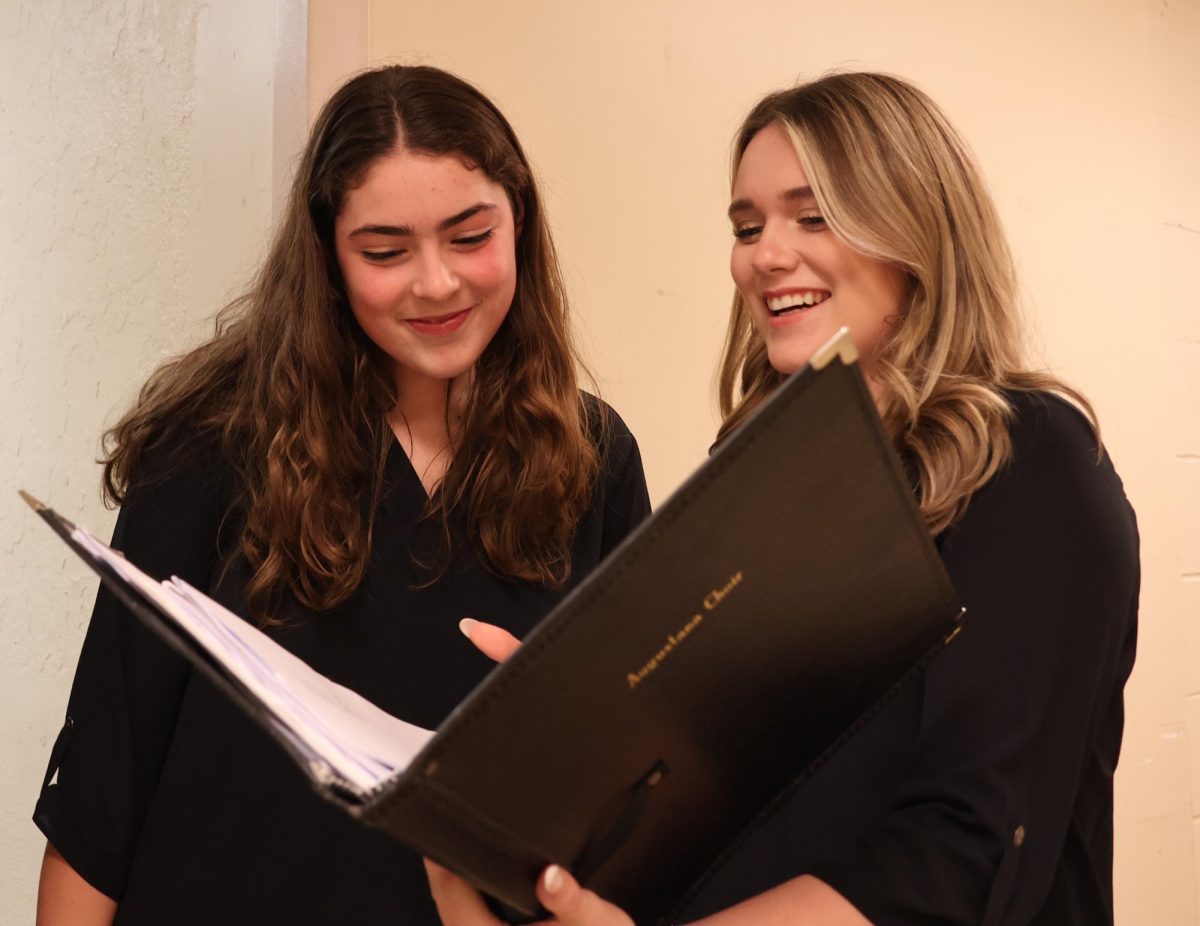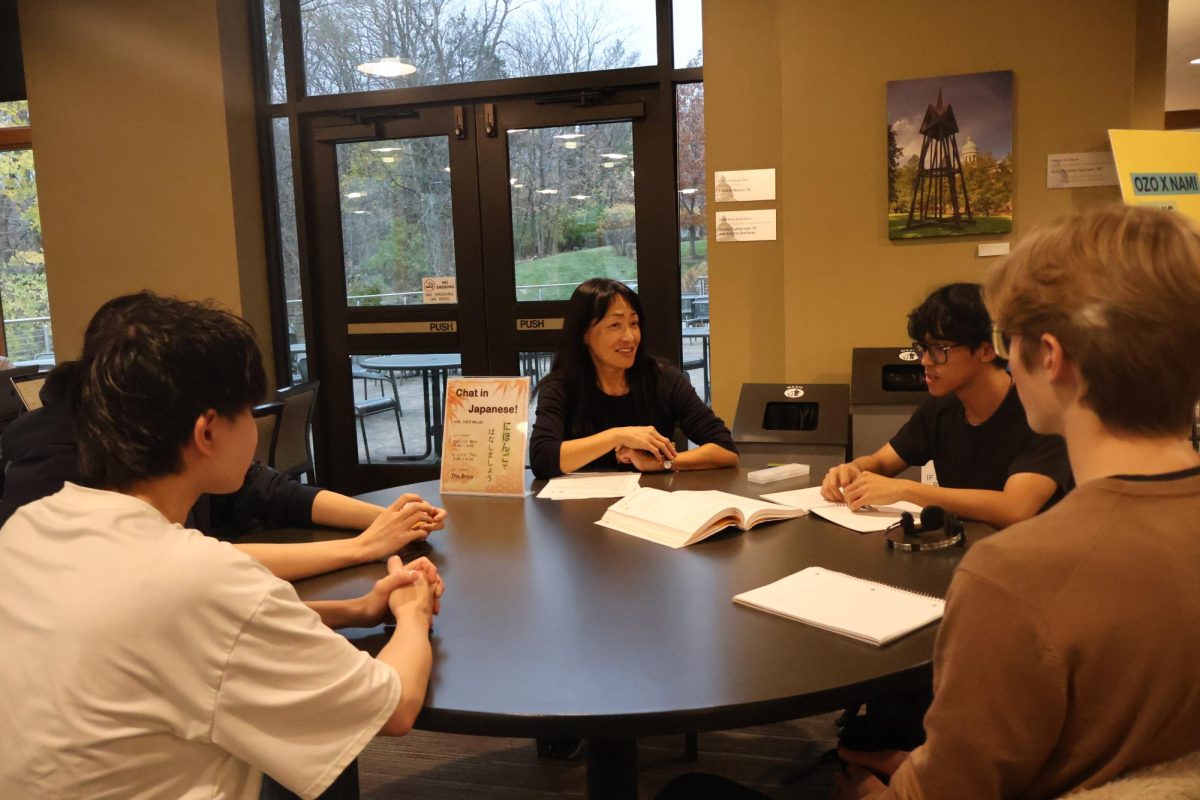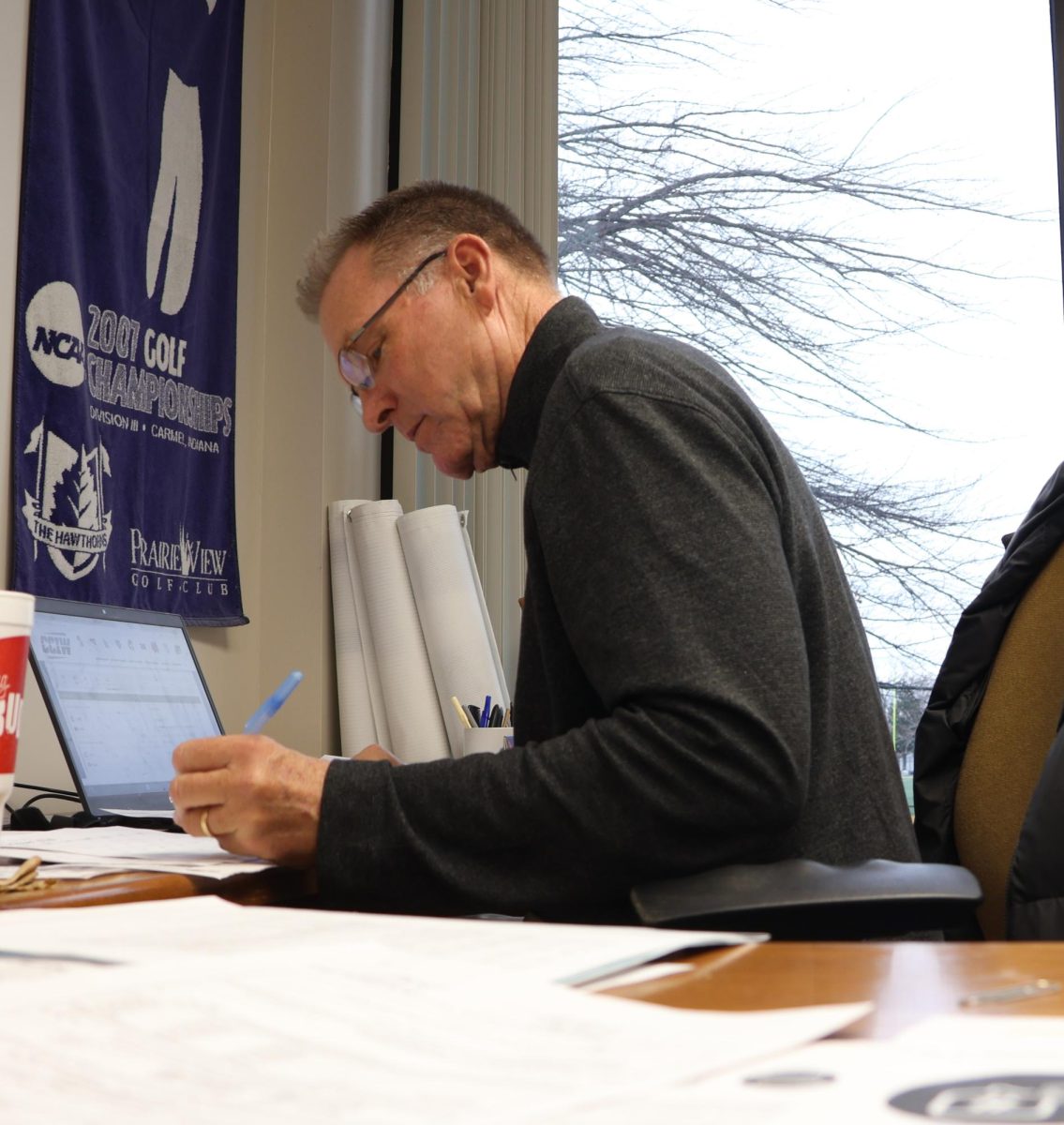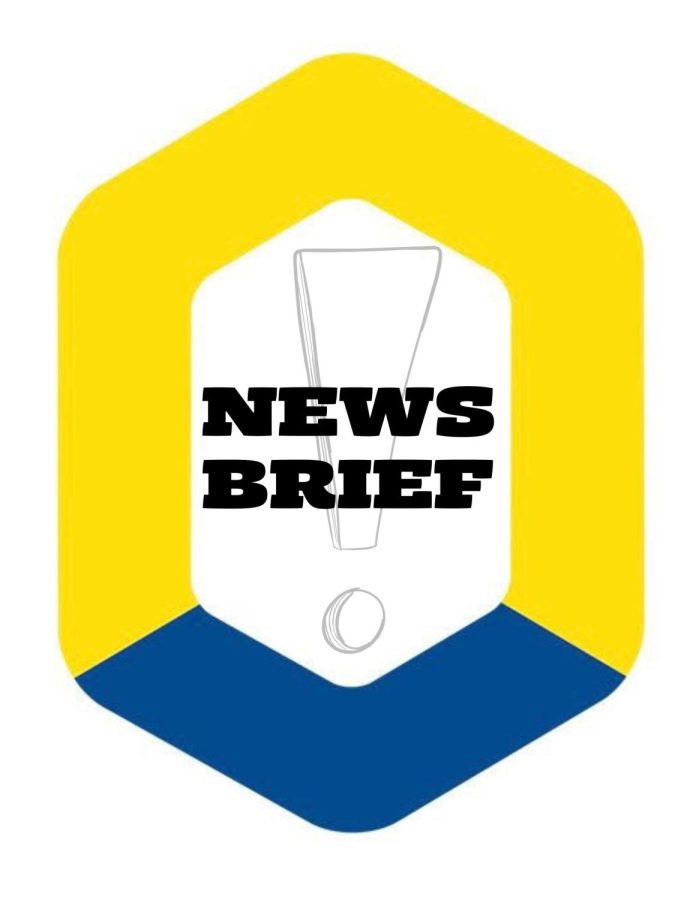Augustana hosted a Welcoming and Inclusive Visioning Session between students and leaders of the Quad Cities Chamber of Commerce on Wednesday, Jan. 16.
At the session, students in Dr. Chris Strunk’s urban and regional planning class met with community member leaders of the Quad Cities Chamber of Commerce’s Q2030 Regional Action Plan in the Wilson Center to present their research and lead discussions on how to improve the Quad Cities.
Strunk, an Augustana geography professor, teaches this class with the purpose of having students be involved with the Quad Cities’ urban and regional planning. The students in this class meet with planners, listen to what these people do for their careers and engage in the planning process.
“This was our first opportunity to engage with community members. So far we’ve been learning about it in the classroom and reading about comprehensive planning,” Strunk said. “Now this is students’ opportunity to practice the planning and get those skills: how do you lead a community meeting, how do you facilitate conversations with topics like this.”
What sparked this project was a conversation Strunk had. He said, “I was talking with Dave Geenen, who is an alderman here in Rock Island, and we were thinking about some of the ways the Quad Cities could be more welcoming and inclusive. We talked about the fact that the Quad Cities Chamber of Commerce has this regional action plan, the Q2030.”
Greg Aguilar, director of Q2030 – Regional Action Plan, said, “It sets goals of where we want to be as a region by the year 2030. It is broken up into four pillars of cool places, creative people, connected region, and prosperous economy. Within all of those pillars, there are different work groups that create the cool places, creative people, connected region, and prosperous economy that we want to strive for.”
This Regional Action Plan was launched six years ago with the question of where the Quad Cities wanted to become by the year 2030. After a public survey went out to the town, the four pillars Aguilar discussed were established. After that, three business people came forward as the Tri-Chairs for the action plan to work with the Chamber of Commerce to forward advance this plan. These three people include Kent Pilcher, Joe Slavens, and Steven Bahls, the President of Augustana.
Bahls said, “Q2030 is important for a number of reasons. One reason is to make sure that college students and people growing up in the Quad Cities have opportunities to stay in the Quad Cities. Much of the research shows that what makes a metropolitan area cool and creative is not what 60 year olds do, but keeping 20 or 30 year olds to make it cool, creative, start new businesses, help the art scene, help us become more diverse.”
The Welcoming and Inclusive Visioning Session was to further push this plan to its goal. The session was broken into three parts: the students discussed their research, small group discussion, where students and community leaders attempted to identify problems and find solution and large group discussion, where the small group discussions were brought to the attention of everyone in the Wilson Center.
While discussing the session, Bahls said, “What stuck out to me the most was that our students, as they were talking with community members, had thought about the theories of becoming more diverse. Community members had thought about the practical implications of becoming more diverse, and I saw theory meet practice there. So our students have good energy, in a sense know what needs to be done, and community members know how to do it. That blending was magical.”
According to Scott VanDeWoestyne, the inclusion and equity administrator for the City of Davenport, “One of the biggest things that we thought that needs to be checked and looked at was how people perceive crossing the river. There’s a lot of people from Iowa that won’t cross the river for activities in Illinois. Mostly like events, but basically that’s what we’re trying to see if we can change, to see if we can get people to cross the river more often. People work, they have to cross the river to different states, but we want people to cross more freely, and have more communication, and develop more relationships.”
One of the main factors that was in agreement by the end of the session was the importance of diversity in the Quad Cities. “You know,” Aguilar said, “if we only had engineers, it would be tough to get anything done in our community, just like if you only had artists, so diversity is, you need all types of people. Also, diversity is a very broad word. There is diversity in people, genders, ages, but what’s important about diversity is that as we’re making decisions in our community, and as we’re advancing our community, if we haven’t heard from diverse opinions, we might be singling out or herding out a community.”
However, to reach diversity the community has an important but tough journey ahead. “I feel that people in the government,” Bahls said, “people in business, people in nonprofits are deeply committed to diversity. I feel that sometimes we fall down, though, in execution of our plans. That’s where we need to work. We need to get people the skills to execute the plans well, so that when decisions are being made that there are a lot of voices at the table, that we empower people with the toolkits to make good decisions, and that we keep focused on the big issues in our community that are diversity-related: income, inequality, environmental justice, and justice issues. I think Augustana can help with that.”
Even though Strunk’s class will end this term, some of the students wish to continue with improving the community. Sophomore Jue Jue Thaw said, “So for this welcoming plan, I think we will, some of us will definitely be continuing as our research, or like even internship things, so we’ll probably keep working on it, but it might not be as a class, and there’s also one thing that we might not finish our class, so, I don’t know, some students might take that as research as SI or a summer research opportunity.”
For those who want to impact the community, VanDeWoestyne said, “Get involved, start talking to people, start talking to their neighbors, start talking to people that they don’t know, people they do know, and just go out of their way to meet people that they maybe have never met before, and make friends. That’s how we build a community, it’s one person at a time, becoming friends at a time, until that really mushrooms.”
Categories:
Students impact Q2030 regional action plan
January 24, 2019
0
Tags:
More to Discover
